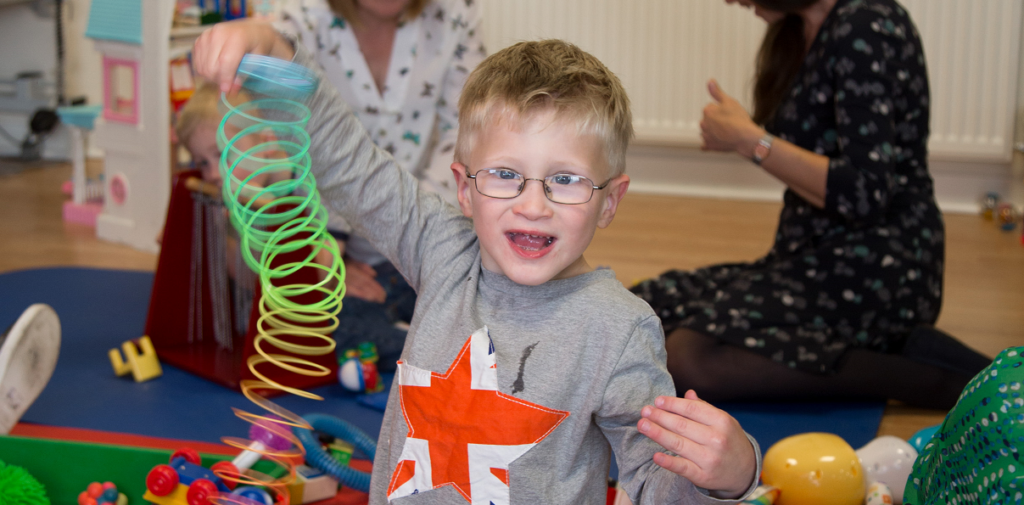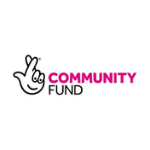This blog from Marion is about her experience with moving into supportive accommodation and some of the changes and challenges she has had to face in the process.
Hello everyone again. This blog which you are about to read will be about my experience with moving into supportive accommodation. I will also talk a bit about my previous houses, as well as the huge change I needed to make to my life.
I first moved into my own flat in 2008, and at the time I was supported for most of the week including overnights. I became an advocacy worker and worked regularly in an office, which I loved. I had a great team of support workers and some are still great friends. Over time I moved to another house at the other side of Paisley. I got support but unfortunately I did not get full support while I was there but it was still nice to have a bit of independence. I also became a volunteer at Cerebral Palsy Scotland.
All my life, my parents and I always promoted my independence since attending the Bobath Centre in London from the age of one. “She does the work, not you”, I can still hear my dad saying!
In 2020, before the pandemic, my Social Work Department offered me the chance of moving into supportive accommodation. I wasn’t that keen on the idea but I knew for the future that was the best option for me. I got the keys to my new flat finally in the August.
During the lock-down period I had many zoom meetings to set up my service with my service provider. I finally got my team of support workers this March after months of interviews.
In May I moved in. For the first time in my life I was on my own at night. I can get support if I need it from an on-site core team. It is still hard to get used to.
It has not been that easy for me to deal with all the changes I needed to make to my life, like using a hoist instead of a stand aid because of my service provider’s rules.
Another change is, I can’t sit on my sofa every night. That means I’m in my wheelchair for nearly 15 hours a day.
Being brought up one way, e.g. therapy, doing what I want without thinking about how I can get to the toilet when I am out, and also being able to stand many times a day, I now need to adjust to another way. I need to use a hoist, so I feel my world has become more limited. That is what I’m struggling with big time.
I feel like I need to make the best I can out of the situation that I find myself in. My advice to people who find themselves in a similar situation is, you have to be patient and keep going.
Even if you are worried you have to give it a good try and you may be amazed by what you can do.
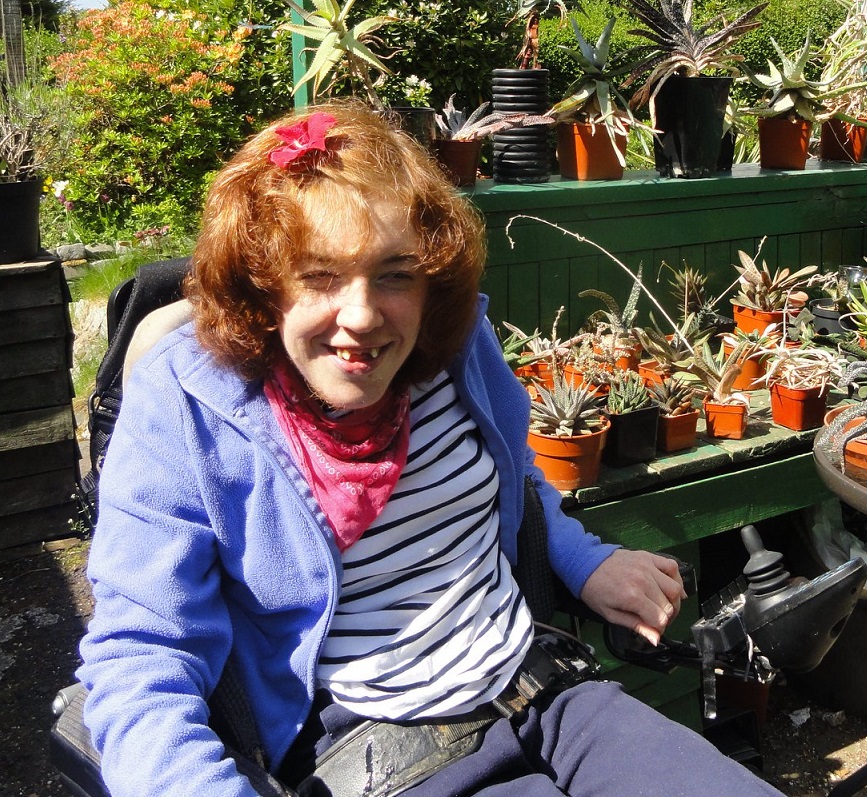
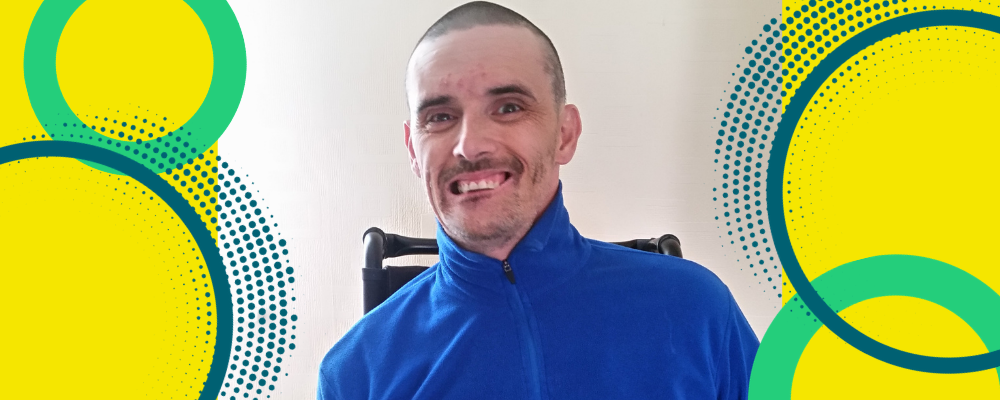
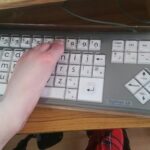 But I don’t use my hands. I have a big keyboard with an overlay on top of it. Down to my hands is very jumping which comes off of my CP, I type with my big toe. Then down to me can’t work a mouse, I use a jelly skill and work it with my foot.
But I don’t use my hands. I have a big keyboard with an overlay on top of it. Down to my hands is very jumping which comes off of my CP, I type with my big toe. Then down to me can’t work a mouse, I use a jelly skill and work it with my foot.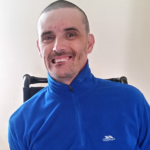 When I was about 23 years old I lived in Red Cross in Irvine. When I started there I was a part of the Gateway project which was for 16 to 26 year olds to show us new skills. One of the best things I got out of the project I was able go on a course call Part and Polly making with the Gateway. One of the things I got from doing the course I was told no matter what you are able to do anybody got a skill even just a happy face.
When I was about 23 years old I lived in Red Cross in Irvine. When I started there I was a part of the Gateway project which was for 16 to 26 year olds to show us new skills. One of the best things I got out of the project I was able go on a course call Part and Polly making with the Gateway. One of the things I got from doing the course I was told no matter what you are able to do anybody got a skill even just a happy face.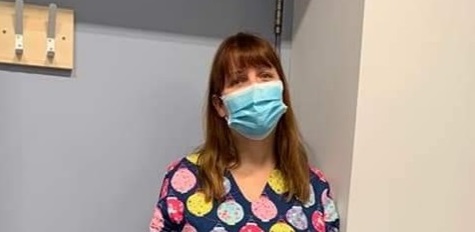
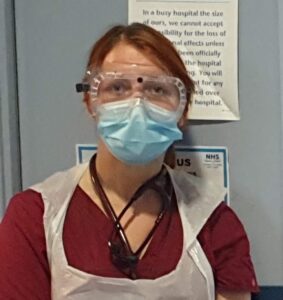 However, it is not all doom and gloom in the NHS. While there can always be things you look back on and think you could have done differently, everyone working has pulled together like never before and tried their absolute best. This time last year we had no known treatment for COVID – now we have several. The scientists have worked extraordinarily hard. I was lucky enough to have the opportunity to enrol in the Oxford vaccine trial last June (and as I subsequently found out in January – lucky to have been in the COVID vaccine group). Just 6 months on that vaccine was being rolled out to give us a route out of this pandemic, which is amazing. We have tried to continue as much of our other non-COVID work as possible. For example in the work I do with older cancer patients we have been using virtual means. COVID has given us an opportunity to change the way we work and some of that may be for the better.
However, it is not all doom and gloom in the NHS. While there can always be things you look back on and think you could have done differently, everyone working has pulled together like never before and tried their absolute best. This time last year we had no known treatment for COVID – now we have several. The scientists have worked extraordinarily hard. I was lucky enough to have the opportunity to enrol in the Oxford vaccine trial last June (and as I subsequently found out in January – lucky to have been in the COVID vaccine group). Just 6 months on that vaccine was being rolled out to give us a route out of this pandemic, which is amazing. We have tried to continue as much of our other non-COVID work as possible. For example in the work I do with older cancer patients we have been using virtual means. COVID has given us an opportunity to change the way we work and some of that may be for the better.